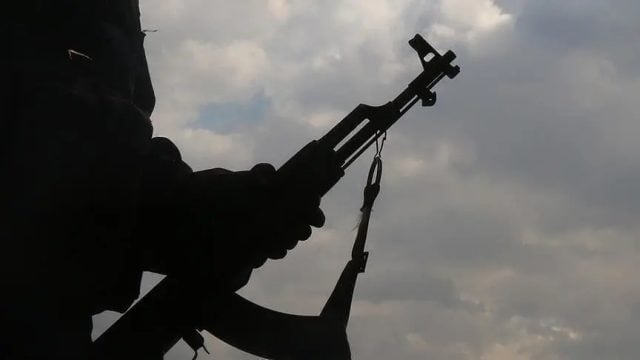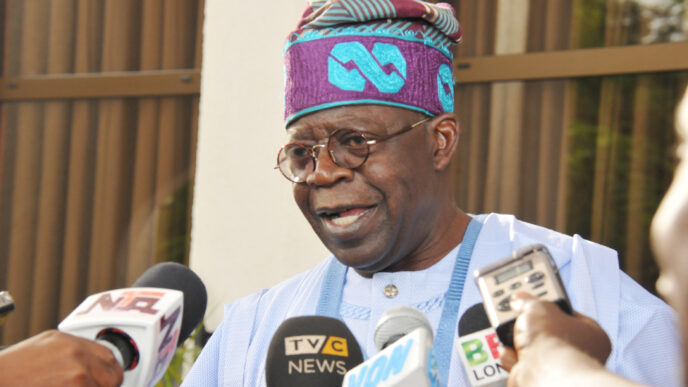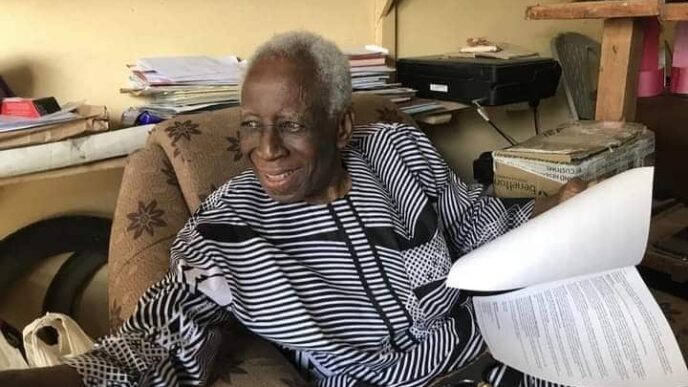File photo
BY JAIRUS AWO
Yesterday, a friend of mine who works with a leading conflict-reporting newsroom in Africa shared some data about the ongoing Benue killings from an organisation called “GST” on Twitter. The claim from this source was alarming: “Armed men are now in control of 18 out of 23 local governments in Benue state.” As a conflict reporter with extensive experience covering the issues in Benue, and someone still in touch with the people on the ground, my initial reaction was one of disbelief. I quickly recognised that this data was misleading and didn’t reflect the current situation in Benue at all. However, this prompted a dilemma: how do I set the record straight without undermining the very real suffering of the over two million victims who have been forced into refugee camps, enduring hunger, depression, and inhumane living conditions?
My friend and I quickly agreed that the political machinations surrounding the insecurity in Benue have distorted the facts. The voices of the victims, their pain and suffering are being drowned out by competing interests. These interest groups are more concerned with their own political goals than addressing the dire realities faced by the people. The stories of those affected by violence are either minimised or used to further specific political agendas, which ultimately harms the very people the attention is supposed to help.
While we were deep in conversation, I heard a strange wail from the neighbourhood. My heart sank. To my shock, a neighbour who had been travelling to Makurdi, a young man of 37, who had been abducted along the Makurdi-Otukpo road along with others just a few days ago, was now confirmed dead. His body had been dumped by the roadside by armed men. His story, along with countless others, embodies the grim reality many in Benue face every day.
Advertisement
Benue killings: A distorted narrative?
The tragic reality is that armed attacks continue to plague Benue, leaving the state in a state of fear, chaos, and despair. While the claim of armed men controlling 18 out of 23 local governments may be an exaggeration, the situation on the ground is still extremely dire. Thousands have been displaced, villages have been razed to the ground, and local governments are struggling to maintain law and order. Yet, the media and political narratives surrounding the killings in the state often obfuscate the severity of the situation, either downplaying it or sensationalising it for political gain.
Many of the claims about the scale of violence in Benue are influenced by political interests. Some factions aim to depict the situation as one of total collapse in order to discredit the current administration under Governor Hyacinth Alia. However, these claims ignore the complex reality of the conflict. The killings and insecurity are primarily driven by a combination of inter-communal clashes, attacks by armed criminal groups, and the impact of national policies especially concerning herders and farmers.
Advertisement
In recent months, these attacks have escalated. Over two million people are now displaced within Benue, living in overcrowded refugee camps under dire conditions. Food and water shortages, poor sanitation, and mental health issues caused by the trauma of displacement have compounded the suffering of the affected communities. The official statistics on deaths and injuries continue to climb, yet these numbers often get overshadowed by competing political narratives.
The victims are not just statistics. They are real people whose lives have been shattered. They are farmers, traders, and students. They are women, children, and elderly individuals who had nothing to do with the political games being played at the state and national levels. They are the innocent bystanders of a conflict that has spiralled out of control.
The conspiracy narratives: Political machinations
As if the suffering of Benue’s people weren’t enough, a more insidious layer of political intrigue is emerging. Some interest groups are deliberately trying to destabilise the state and make it ungovernable for Governor Alia. This is not an accusation but a well-documented strategy to exploit the insecurity for political gain.
Advertisement
Governor Hyacinth Alia, unlike his predecessor Samuel Ortom, has refused to publicly raise a ruckus over the insecurity plaguing the state. Ortom, whose tenure was marked by frequent statements about the security crisis, became a vocal advocate for the people. His strategy was often to draw national and international attention to Benue’s plight. However, Governor Alia’s more subdued approach, at least in the public eye, has left a vacuum for those with ulterior motives to fill.
Critics have taken advantage of this silence. They have painted Alia as either indifferent or incapable of dealing with the insecurity. This has given rise to a growing narrative that Benue is on the brink of an emergency, and some groups are openly calling for a state of emergency to be declared, similar to what was done in Rivers state. The logic behind this is simple: if the current governor cannot handle the situation, then it would justify external intervention. This external intervention could pave the way for a shift in the political landscape of Benue, especially ahead of the 2027 elections.
One of the most potent factors fueling this conspiracy is Alia’s opposition to the anti-open grazing law that was passed by the previous administration. The law, which banned open grazing in Benue, was one of the pillars of Ortom’s governance and was heavily criticised by various interest groups, particularly pastoralists. When Alia took office, he signalled his intention to amend or outright reverse the law, believing it was not a sustainable solution to the problem.
This position has provided another avenue for political interests to exploit. They argue that Alia’s perceived softness on the open grazing issue is a contributing factor to the growing violence in the state. Some even claim that the attacks on farmers and communities are directly related to the governor’s reluctance to enforce stricter measures against grazing. These claims have little factual basis but have become a political tool to undermine Alia’s authority and governance.
Advertisement
The push to declare a state of emergency in Benue is, therefore, not just about security; it is about creating the conditions for a political takeover. By painting the current administration as ineffective, these interest groups hope to delegitimise the governor and pave the way for an alternative political solution. This would allow them to install a government that is more amenable to their demands, including revisiting controversial policies like the open grazing law.
The impact of political instability on Benue’s citizens
Advertisement
While all of this political manoeuvring plays out in the corridors of power, the reality for the citizens of Benue remains grim. Their lives are being upended by violence, displacement, and a lack of adequate response from both the state and federal governments. The interests of political factions may be playing a major role in shaping public discourse, but for the people of Benue, the pain is real, and the consequences are devastating.
The constant instability has created an environment in which fear reigns. People can no longer farm their land in peace. Children are denied an education, and families are torn apart. The government’s failure to prioritise security and humanitarian aid only deepens the crisis. What’s worse is that this failure is now being politicized, with political groups using the situation to score points rather than addressing the immediate needs of the people.
Advertisement
The insecurity in Benue state cannot be reduced to a political talking point. It is a humanitarian crisis that requires urgent attention and action. The people of Benue deserve better than to be used as pawns in a political game. They need solutions, not rhetoric. They need real leadership that will prioritize their safety, their well-being, and their future.
The people of Benue have already been through so much. They cannot afford to be used as pawns in the political games of others. It is important to remember that the true victims are not the politicians but the ordinary citizens whose lives have been irrevocably altered by violence and insecurity. It is time to focus on what truly matters: saving lives, providing relief, and ending the suffering of the people of Benue.
Advertisement
This is a wake-up call to the governor of Benue state. The killings are real, people are suffering.
Jairus Awo is a media practitioner writing from Benue state. His works are written in English and are mostly published with TheMiddlebelt Reporters. Feel free to write him on [email protected]
Views expressed by contributors are strictly personal and not of TheCable.




